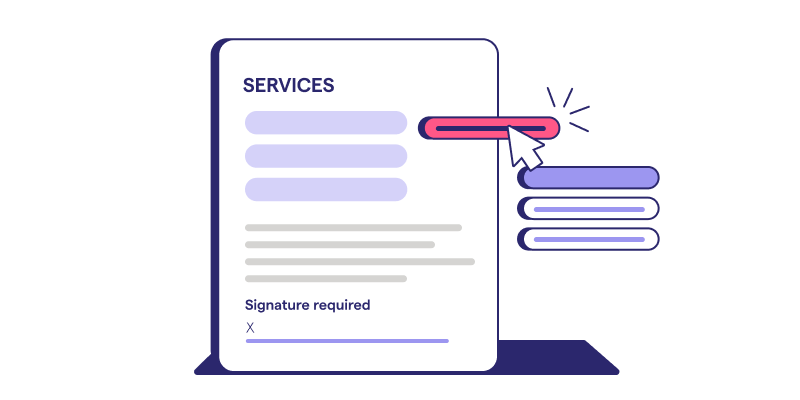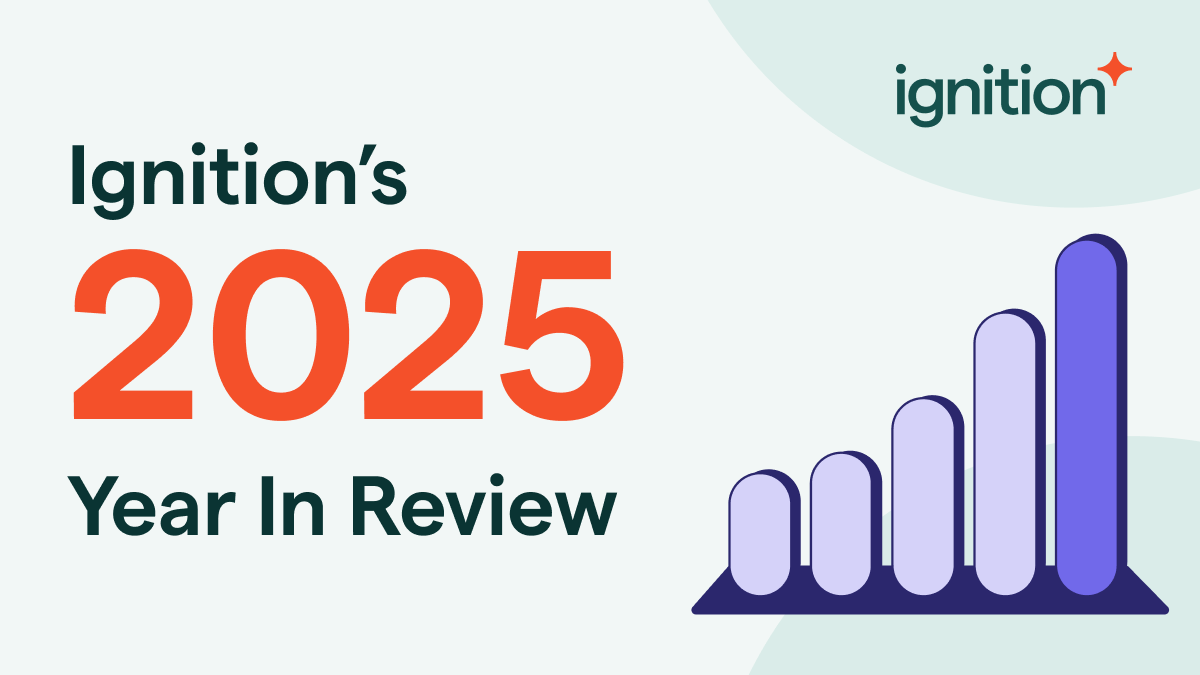Agency guide to writing client agreements in the U.S.

Client agreements are essential for marketing agencies. They help set clear expectations, outline responsibilities, and protect both parties from misunderstandings that could harm the client relationship.
But many agencies still rely on generic templates found online. While these may seem convenient, they rarely account for U.S.-specific legal standards or industry nuances. That can leave your agency exposed to contract disputes, compliance issues, and unnecessary risk.
A cookie-cutter contract might save time upfront, but it could cost you much more in the long run. U.S. laws around intellectual property (IP), payment terms, liability, and data privacy vary widely, so your agreements need to reflect those differences.
We’ll walk you through what to include in your client agreements and how to ensure they’re legally sound for doing business in the U.S.
Key takeaways:
- Generic contracts may save time upfront, but they often overlook key legal and industry-specific considerations that put your agency at risk.
- U.S. contracts tend to be more detailed due to a litigious business environment and state-level legal enforcement. Always seek legal advice before finalizing any agreement.
- Boilerplate clauses like limitation of liability carry real legal weight. They’re essential for protecting your agency in the event of a dispute.
- Writing marketing services agreements without legal support makes it harder to tailor contracts to your business, so it’s critical to have the right tools.
- Ignition simplifies client agreement creation with industry-vetted, customizable templates designed to meet legal and operational needs.
The basics: How to write a client agreement

Writing a client agreement for your marketing agency starts with understanding why it matters. A good agreement outlines what you’re offering, what’s expected from both sides, what’s being delivered, and how payment will be handled.
Using a solid marketing contract template can help you get started, but treat it as a launchpad, not a final draft. You’ll need to tailor it to how your agency works and the kind of business relationships you want to build.
Templates provide structure and useful language, but they’re not one-size-fits-all. Your agency has its own voice and process, and so do your clients. Customizing the agreement helps prevent misunderstandings and protects both parties.
Pro tip: Have a legal expert review your draft to make sure your contract is clear, enforceable, and compliant. It may seem like a small step, but can save time and stress from legal headaches later.
Client agreements for your marketing agency, made easy
Ignition offers customizable templates to get you started.
Key elements of a client agreement
A strong client agreement helps your marketing agency and clients stay aligned from the very beginning of the working relationship. These are some of the core components you’ll want to include:
- Scope of work: Outlines the services you’ll provide based on client needs, helping avoid confusion about what’s included (and what’s not)
- Deliverables: Details what you’ll hand over, in what format, and how often
- Timelines and deadlines: Sets expectations for effective date, project milestones, and review periods
- Payment terms: Specifies how much you’ll be paid, when, and how—plus any late fees or invoicing policies
- Termination clause: Explains how either party can end the agreement and what happens if they do
- Intellectual property rights: Defines who owns the creative work once it’s delivered and paid for
- Confidentiality/Non-disclosure agreement (NDA): Protects confidential information and trade secrets shared during the project
- Dispute resolution: Outlines how disagreements will be handled, whether through arbitration, mediation, or legal action
These components apply broadly. But their legal enforceability depends on local laws and jurisdiction. Always review your agreement with a legal professional to ensure it’s valid where you do business.
What makes U.S. contracts different from other countries
Client agreements for marketing agencies in the U.S. are a little different from those in other parts of the world. While the overall structure is similar, the fine print reflects specific legal and cultural norms.
Let’s look at some of the major differences:
Agreement structure
Client agreements for marketing agencies in the U.S. tend to be more formal and detailed than in many other countries. That’s largely because U.S. businesses prefer to spell everything out upfront to avoid (potentially costly) surprises later. These contracts may be longer, but they’re also clearer and offer more protection for both sides.
You’ll typically see a thorough breakdown of responsibilities, deliverables, timelines, and pricing. Payment schedule and terms, project milestones, and communication expectations are often outlined in detail.
There’s also a strong focus on legal safety nets. U.S. contracts frequently include sections on terminations, dispute resolution, and liability—all designed to reduce risk if something goes wrong.
State-specific enforceability
Contracts are legal documents governed at the state level, not the federal level. Where your agreement is based can significantly affect how it’s interpreted and enforced. States have different rules on dispute resolutions, late fees, non-compete clauses, and other contract terms.
Take non-compete clauses as an example:
- In California, they’re largely unenforceable, as the state prioritizes employee mobility and open competition.
- In Texas, non-competes may be upheld if they’re reasonable in scope and duration.
- In New York, courts allow them under stricter conditions, aiming for a balanced approach.
The same clause might be enforceable in one state but void in another. That’s why every client agreement should include a “Governing Law” clause, stating which state’s laws apply if a conflict arises. It’s a simple but important safeguard.
If your agency works with clients across multiple states (or even internationally) it’s worth accounting for these jurisdictional differences. Consulting a legal expert before finalizing the agreement ensures it holds up wherever business is done.
Culture of litigation
It’s no secret that the U.S. sees more lawsuits than many other countries, and that reality shapes how marketing agency contracts are written. While other regions may favor plain-language or informal agreements, U.S. contracts tend to be more formal and detailed to ensure they hold up if things go sideways.
Clauses around liability, dispute resolution, and indemnity are often dense, but they each serve a clear purpose. In a more litigious environment, clauses like these reduce ambiguity and protect your agency when disputes arise.
And the financial risk is real. A December 2023 study found U.S. commercial liability costs reached $347 billion in 2021. Small businesses absorbed nearly $160 billion of that, despite generating only about 20% of the revenue. For agencies operating on thin margins, that kind of exposure can be devastating.
A strong contract gives you a buffer, protecting your business in the event of a lawsuit or breach of contract, and offering peace of mind in a high-risk legal environment.
Boilerplate and other clauses
Boilerplate clauses are the standardized sections often found at the end of U.S. contracts, including those used by marketing agencies. They might seem like legal filler, but they can significantly impact how a contract is interpreted if conflicts occur.
Here are a few common examples:
- Indemnification: Specifies who’s responsible for covering damages or legal fees if something goes wrong
- Limitation of Liability: Caps how much one party would owe the other in a dispute
- Entire Agreement: Confirms that the written contract is the full agreement—no side deals or unwritten promises
- Severability: Ensures the rest of the contract still stands even if one section is found invalid
- Waiver: States that not enforcing a term once doesn’t mean it’s waived permanently
- Assignment: Addresses whether rights or responsibilities can be transferred to someone else
In other countries, these clauses might be more casually worded (or omitted entirely). But in the U.S., they’re often enforced exactly as written. Even if they feel repetitive or overly formal, don’t skip them: They could play an important role in protecting your agency later on.
Common challenges for agencies writing U.S.-specific contracts
For most small- to mid-sized marketing agencies, writing U.S.-specific contracts is no small task. Many don’t have a legal team or even a go-to business attorney. And terms like indemnification, jurisdiction, and confidentiality clause can feel overwhelming. It’s hard to know what actually needs to be included and what’s just legal jargon.
Still, grabbing a generic contract template and hoping it’ll work isn’t the answer. These agreements often end up too vague, too complex, or simply off-base. New clients may hesitate to sign or start questioning the terms, slowing down onboarding and making your agency seem unprepared.
Copying something from the internet (or from another country’s legal standards) might feel like an easy shortcut, but it’s risky. If your contract doesn’t align with U.S. laws, it might not hold up in court or could contain loopholes that work against you.
And trying to tailor a marketing agreement template without clear legal guidelines? That usually means hours of digging, rewriting, and second-guessing on top of your day-to-day work. Agencies need better tools and clearer direction to write contracts they can trust.
Protect your agency with U.S.-ready client agreements
Protecting your marketing agency starts with having the right contracts in place. A legally binding client agreement is your safety net, not just a formality. While it might be tempting to grab the first decent-looking template online, quick and easy doesn’t always mean legally sound. What matters is finding a template that fits your business and meets U.S. legal standards.
That’s where Ignition shines. The platform simplifies client engagement and payment collection with smart, U.S.-ready agreement templates that are fully customizable, industry-vetted, and legally compliant. You can build trust and stay protected without starting from scratch.
With built-in e-signature capabilities, clients can review and approve agreements in just a few clicks. Set up automatic renewals, send one-off contracts for extra scope, or upsell additional services without adding admin overhead.
Best of all, Ignition supports more than just contracts. It connects your entire client workflow, from proposals to payments, into one seamless experience. You’ll save time, reduce friction, and close deals faster with less stress.
Streamline contracts and get paid faster with Ignition
Ignition streamlines everything from contract creation to billing and invoicing, removing friction from the client process while keeping your agency legally protected. No need to hire extra help or spend hours trying to figure it out yourself.
You can collect payment details the moment a client accepts your agreement, accelerating cash flow and reducing back-and-forth. With powerful integrations, Ignition helps automate tasks across the entire client journey, so you can stay focused on delivering great work.
Simpler, safer contracts
Ignition’s proposal templates streamline contract creation—no matter where you do business.


